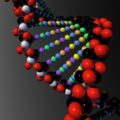
Researchers from the Mayo Clinic have found a way to revive immunity in mice that have abnormal or deficient immune systems. The discovery may lead to a means of restoring immunity to individuals with immunodeficiency diseases such as AIDS and cancer. The research involves an existing therapy which means application may be possible in the near future.
The research team, led by Mayo Clinic immunologists Marilia Cascalho and Jeffrey Platt, report in the Journal of Immunology that B cells, the lymphocytes that produce antibodies, help to generate T cells, the lymphocytes that fight viruses and tumors.
“Previously, it was thought that B cells and T cells, two components of immunity produced by the lymphatic tissues, develop independently until they eventually came together to fight microbes or to eliminate infected cells in the body,” says Dr. Cascalho. “Now we know that the B cells and the immunoglobulin that they produce can help reconstitute immunity by promoting the development of T cells.” For immunity to work it is crucial that there are enough T cells and also that the T cells be diverse so they are able to respond to many different threats. B cells help to make the T cells in the body diverse.
Diversity of lymphocyte receptors is thought to be the key to immunity. A cell’s receptor is the portion that makes it selectively bind with another substance. The more diverse T cell receptors are, the more likely it is T cells of the appropriate specificity will be present to combat today’s sophisticated viruses or evasive bacteria. This flexibility and corresponding T cell receptor diversity are absent in patients with immunodeficiency diseases and in some who have cancer or receive cancer treatment. AIDS patients, for example, may have very few T cells and those T cells they have may not be diverse. The report by Dr. Cascalho’s group suggests it may be possible to boost T cell numbers and diversity by administration of gamma globulin or B cells. Gamma globulin is a protein portion of blood rich in antibodies that is made from pooled human blood and injected as one form of immunotherapy.
“By understanding how the body produces T cell diversity in this way, we believe it may have direct impact on many patients whose immune defenses have been compromised,” says Dr. Platt. “There was no way we knew of that this part of the immune system could build itself back up. Now, we think that this is a way.” Whether B cells contribute to a diversity of T cells through means other than immunoglobulin isn’t known.
Dr. Cascalho theorizes that the gamma globulin might also counter autoimmunity. In some cases autoimmune diseases, such as arthritis, arise because the body lacks the diverse T cells needed to control immune responses. She says gamma globulin could promote the production of new T cells which can control the overreacting T cells that attack the body’s healthy cells. In this way, clinicians may be able to alter immunity by skewing or redirecting the focus of the body’s misdirected immune response. While she says this theory is untested, it could be one more method for controlling autoimmunity.
The next step is to test the current findings in clinical trials. This process may take less time than usual because gamma globulin is approved by the FDA for other uses. That will allow the researchers to retarget it to verify their discovery in humans. “Because of this availability, we should expect to see some results in a matter of a few years, rather than in a decade or more,” says Dr. Cascalho.








Comments are closed.